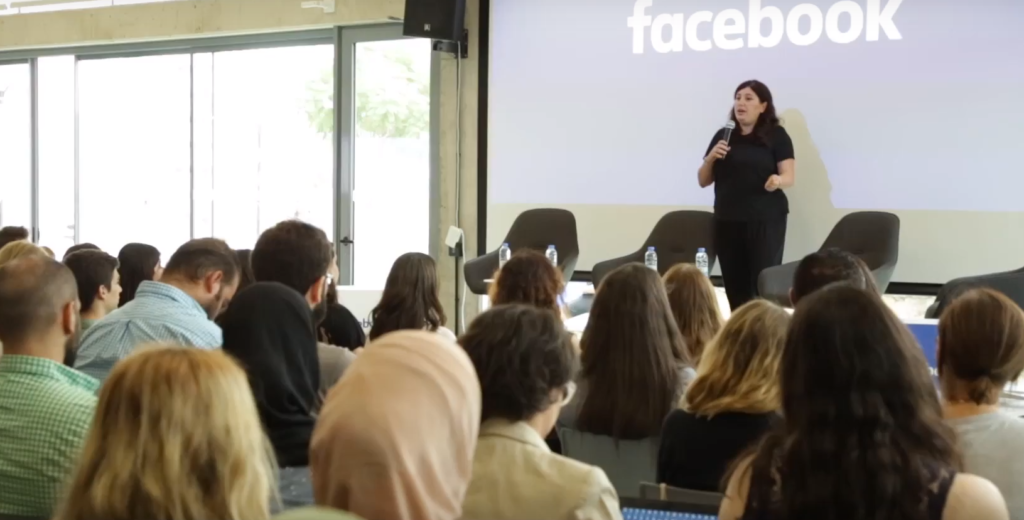id=”422″ id=”post-1074″ class=”wp-post-content-block ” itemscope itemtype=”http://schema.org/BlogPosting” itemprop=”blogPost”>
Tech and effective political communication support female leaders in Lebanon
By Laudy Issa
WE4L Lebanon partner Maharat Foundation recently hosted a workshop on effective political communication for more than 20 female university students, providing important gendered knowledge for an upcoming generation of female leaders in media and politics.
Held in collaboration with the Thomson Foundation, a media non-for-profit that trains and provides strategic advice on journalism in developing countries, the workshop taught participants how to build an effective communications strategy and identify the target audience and messages. The workshop also defined the different tools that leading women can use to establish themselves in their respective fields and successfully communicate their messages.
The participants, who came from different universities across Lebanon, expressed the impact of such workshops on their careers and for leading women in politics through a video released by Maharat Foundation.
“There were a lot of details related to communication strategies that I didn’t know about,” said Nathalie Abou Adileh, one of the students who attended the workshop. “I learned how to put the plan for political communication specifically. Other than that, I also learned about slogans, not to confuse them for the message being sent, and the difference between thee two.”
Other students highlighted the sectarian divisions in Lebanon, and how initiatives like those by the WE4L partner help create the much-needed culture of communication in the country.
Maharat also released a second video highlighting the role of technology in empowering leading women.
“Technology is currently the most important component of our world. So, to take part in the development of the country and public affairs, women should be aware and have enough knowledge of everything happening in it now,” said Krsytel Chaccour, a product manager at Anghami, the first legal music streaming platform in the Arab World.
The video also pinpointed several of the difficulties faced by women in tech fields, including the unsupportive environment and difficulties in networking. While more women are being hired,elected, or promoted to leadership positions, Lebanon still lacks a suitable and supporting environment for them to work in.
“Sometimes I feel like I should raise my voice, or remind them that I am not done talking. So you get tired at the end of the day, and you feel like your energy has gone into trying to defend your work instead of doing it,” said Eliana El Haber from Mackenzie. “Hopefully, with all the initiatives we’re seeing here, we can change this in the future.”
The foundation also hosted a discussion on women in information and communications technology (ICT) in early October to highlight the experiences of women who have succeeded in establishing themselves in public spaces through the effective use of available technology.
Participants talked about the effective use technology for women in leadership positions. Activist and 2018 parliamentary candidate Joumana Haddad highlighted how her political participation was strengthened through the Internet, and others discussed the role of social media in political communication and in creating a previously-unavailable space for different campaigns to emerge.





